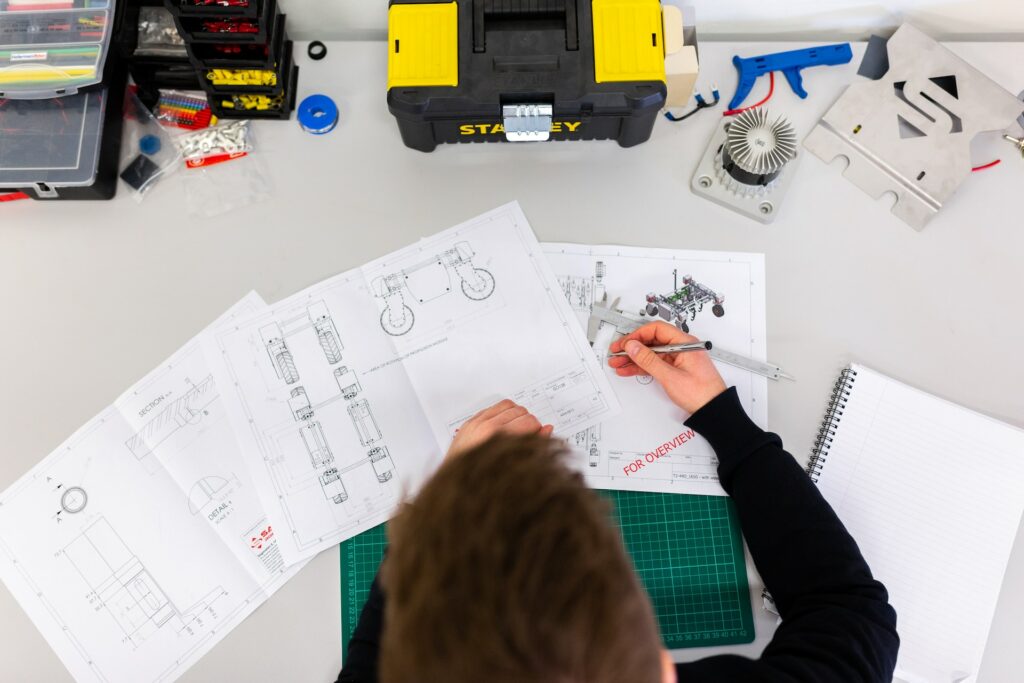In today’s fast-paced and ever-changing job market, individuals recognize the importance of staying ahead and securing in-demand careers. As a result, many aspiring professionals are increasingly drawn to technical degrees. But what kind of degree is a technical degree, and how can it significantly impact one’s journey toward success?
Read on as we embark on an in-depth exploration of the world of technical degrees, shedding light on what a technical degree is, what the requirements to get such a degree are”, and much more.
What Is a Technical Degree?
A technical degree, also known as a vocational or applied degree, is a type of educational qualification that prioritizes specific technical skills needed in various industries. What distinguishes technical degrees from traditional academic degrees is their emphasis on hands-on training and practical experience rather than theory, which prepares students for specific occupations.
Technical degrees are usually completed within two years, providing an accelerated pathway for acquiring industry-specific knowledge and starting a career.
Examples of Technical Degrees
Technical degrees cover a wide variety of subjects and offer specialized programs in various fields, including:
- Information Technology: IT programs cover computer science, software engineering, cybersecurity, and network administration. Graduates develop expertise in developing, managing, and securing digital systems.
- Graphics, Multimedia, and Web Design: These programs focus on graphic design, multimedia production, and web development, equipping students with the skills to create visually appealing digital content.
- Engineering: Engineering technical degrees include electrical technology, architectural building engineering technology, mechanical engineering technology, and welding engineering technology. These programs provide comprehensive training in specific engineering fields to address industry demands.
- Healthcare: Technical degrees in healthcare encompass nursing, radiology technology, medical laboratory science, dental hygiene, occupational therapy assistant, physical therapist assistant, surgical technology, medical assisting and administration, medical laboratory technology, health science, and respiratory care. These programs prepare individuals for direct patient care or supporting roles in healthcare services.
- Automotive Technology: Technical degrees in automotive technology equip students with the necessary skills for automotive repair, diagnostics, and maintenance. Graduates gain specialized knowledge to address the complexities of modern vehicles.
What Are the Requirements To Get a Technical Degree?
Technical degrees have varying requirements depending on the field of study. However, most schools offering such programs have general prerequisites that you must meet. These include a high school diploma, a General Educational Development (GED) certificate, or a state-approved home-schooling certificate.
Some programs may also require a personal statement or essay highlighting your interests, goals, and work experience. However, it’s important to note that specific requirements can differ, so carefully reviewing the program’s admission criteria for accurate information is advisable.
Benefits of a Technical Degree
Now that we have a general technical degree definition let’s discuss some of the benefits it provides!
Promotion and leadership opportunities
As a technical degree graduate, you will possess a unique combination of specialized knowledge, practical skills, and problem-solving abilities, making you highly sought-after for managerial positions. Your expertise enables you to offer valuable insights and innovative solutions to complex challenges within your respective fields. With practical experience and the ability to navigate industry complexities, you will be well-equipped to handle real-world scenarios.
Positive job prospects
A technical degree gives job seekers an advantage in the current market as industries such as engineering, IT, healthcare, and manufacturing require skilled professionals. These fields have a positive job outlook, making it relatively simple to secure employment after graduation.
For instance, the Bureau of Labor Statistics reports that computer and information technology occupations are predicted to grow by 11% from 2019 to 2029, much faster than the average for all occupations. Similarly, the healthcare industry is expected to see a 13% increase in employment opportunities from 2021 to 2031.
Learning management skills
Technical degree programs not only teach practical skills but also equip you with managerial and leadership abilities. This includes project management, teamwork, and communication training. After obtaining such a degree, you can take on leadership roles and excel in diverse work environments, contributing effectively to your organization.
Able to start work sooner
Technical degrees, through specialized training, generally offer a faster track to entering the workforce than traditional academic degrees. Because of the shorter program length as well as the nature of the degree, you can gain practical experience and start earning at a younger age, building your professional network and achieving financial independence sooner. This early start can lead to faster career progression and increased earning potential.
Hands-on experience
Technical degrees are highly regarded for their practical and hands-on learning approach, including industry-specific projects and experiential exercises. This teaching method can equip you with the necessary skills and knowledge to tackle real-world challenges, making you immediately employable.
Through laboratory work and industry engagement, you can gain valuable practical experience, which employers highly value as it demonstrates your ability to contribute to the workforce from day one. Overall, with a technical degree, you will have a competitive edge in the job market due to your practical skills and problem-solving abilities.
Flexible schedules
Technical degree programs also offer flexible scheduling options like evening classes or part-time study to accommodate your day-to-day life and responsibilities. This flexibility allows you to balance your education with personal or professional commitments. By providing classes outside traditional daytime hours, technical programs ensure you can pursue your education without sacrificing other obligations.
The availability of flexible scheduling promotes accessibility, allowing working professionals and those with family responsibilities to acquire specialized skills. This way, you can customize your learning experience based on your unique needs and schedules, thus advancing your career and achieving your educational goals while simultaneously fulfilling other commitments.
✅ Request information on BAU's programs TODAY!
The Bottom Line
Technical degrees provide a valuable pathway to acquiring specialized knowledge and practical skills in various industries. With shorter durations than traditional academic degrees, technical programs allow individuals to enter the workforce sooner and gain practical experience at a younger age.
The emphasis on hands-on learning equips graduates with the ability to tackle real-world challenges and make immediate contributions in their chosen fields. So, take advantage of the flexibility and practicality offered by technical degree programs to gain the skills and knowledge you need to thrive in today’s competitive job market.











